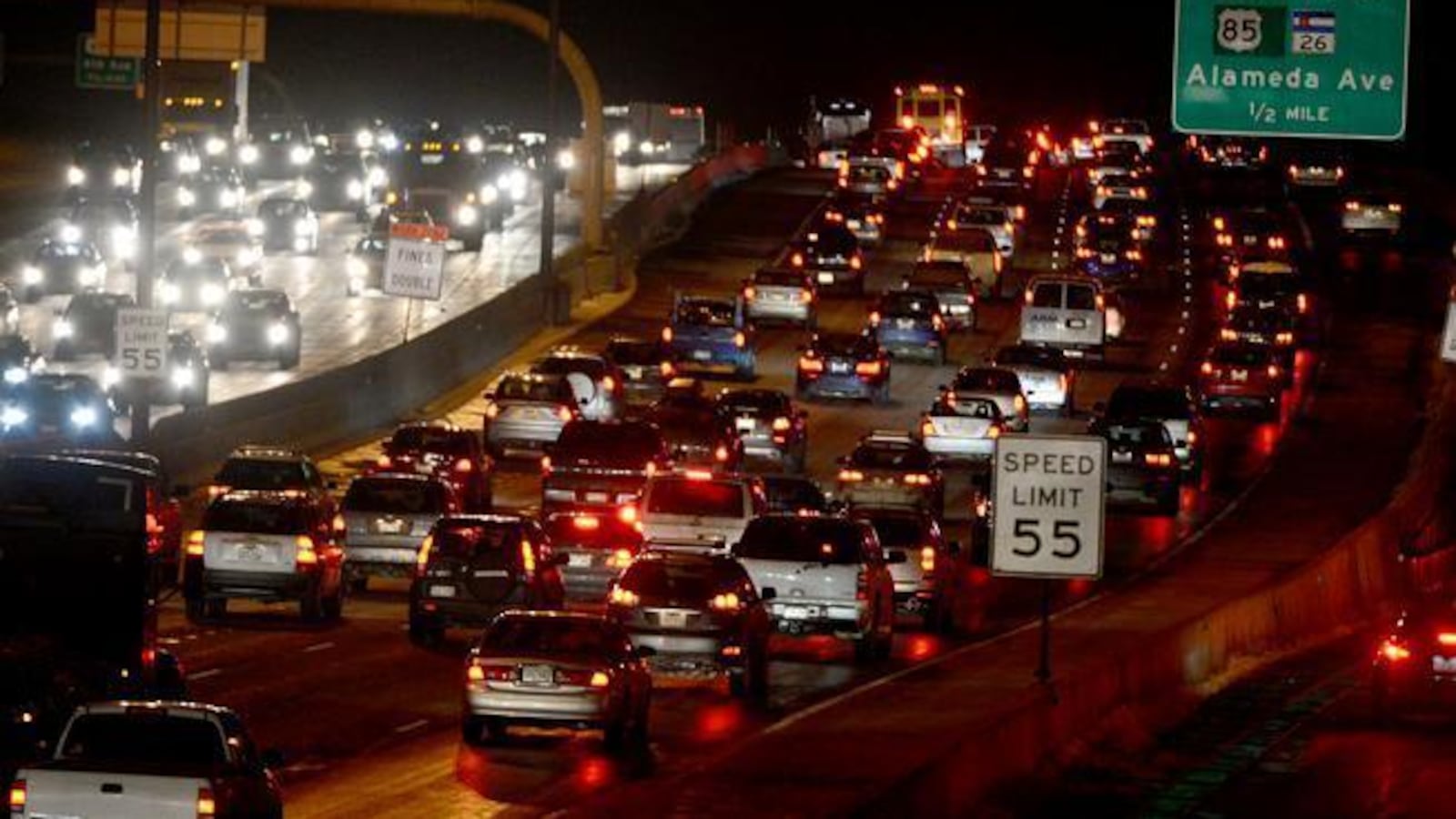Colorado voters face two competing transportation measures this November, and one of them has some education advocates worried.
Should Proposition 109, dubbed “Fix Our Damn Roads,” pass on Election Day, it would require the state to borrow up to $3.5 billion for transportation projects without any new taxes or fees to cover the cost. Paying that money back would cost an average of $260 million a year, state analysts said.
Since education and transportation often compete when the Colorado General Assembly writes the state budget, some worry that paying off debt from road projects could come at the expense of funding for education. In recent years, Republicans have felt that transportation got the short end of the stick, while education advocates continue to push for the restoration of funding that was cut during the Great Recession.
In 2018, the legislature increased base education spending by 7 percent but still fell $672 million short of a constitutional provision that requires spending on schools to go up by inflation plus population each year. The legislature also committed $495 million to transportation projects, but ongoing spending — $150 million next year and $50 million a year after that — was far less than Republicans originally wanted.
Now voters are being asked to weigh in. “More simply, this is a fight about how Colorado should spend its tax money,” Brian Eason wrote in the Colorado Sun.
Michael Fields, executive director of Colorado Rising Action, a conservative advocacy group, said Proposition 109 doesn’t present the dire trade-offs that some fear. He points to this most recent legislative session as an example, when lawmakers gave a lot more money to schools, roads, and the public pension system. Next year, the Trump administration’s tax cuts are expected to generate between $196 million and $340 million in additional state revenue.
“[Lawmakers] gave money to transportation and to education,” he said. “That’s the model going forward. The message from voters is clear: They want roads fixed and they want teachers paid more. And I think we can do both in the existing budget.”
The question isn’t so much what happens next year, but what happens during the next recession — or the next time the state hits its spending limits under the Taxpayer’s Bill of Rights. That constitutional provision requires voters to approve any tax increases and limits how much the state budget can grow each year. When Colorado takes in more money from a booming economy, it sometimes has to give that money back to taxpayers, meaning it’s not available for other programs.
But Colorado would still need to make its debt payments on transportation bonds.
“Without creating a new revenue stream, legislators would be forced to take money from education, health care, and early childhood to fund transportation initiatives,” policy analyst Samantha Espinoza wrote in a blog post for the advocacy group Colorado Children’s Campaign, which opposes Proposition 109. “Programs that support child development, like health care, education, and preschool will be among the first on the chopping block when the state budget takes a turn for the worse.”
The other transportation measure on the ballot, Proposition 110, would increase the state sales tax rate from 2.9 percent to 3.52 percent for 20 years. The money would be shared between the state and local governments, and 15 percent would be set aside for multimodal projects — bike, pedestrian, and transit infrastructure. It would allow the state to borrow up to $6 billion, with the sales tax revenue going to pay off the debt.
It’s not clear what happens if both transportation measures pass — Proposition 109 is polling well ahead of 110. Colorado voters have traditionally been wary of statewide taxes, but previously approved a long-term debt program for roads in 1999. For many conservatives, that $1.5 billion bond program remains a model for funding transportation infrastructure. Since the state finished paying off those bonds in 2016, most of the Colorado Department of Transportation’s $1.4 billion budget has gone to maintenance, with little left over for new projects. State transportation planners have a $9 billion priority wish list.
Also on the ballot this year: Amendment 73, a $1.6 billion tax increase for education, and Proposition 112, a measure that would push oil-and-gas activity much farther away from schools but that opponents predict would have major financial implications for state and school district budgets.


